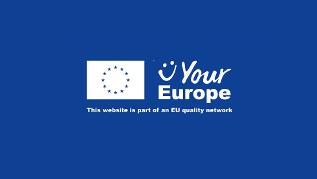Product Contact Point
To improve the free movement of goods within the European Union, Product Contact Points have been set up in the Member States. The purpose of these Product Contact Points is to facilitate access to the national market for economic operators of other Member States.
Their principal task is to provide information on products for which no uniform regulations have so far been introduced across the EU. This particularly includes information on current national product legislation. These are laws, regulations or administrative provisions that provide requirements for products, for example with regard to composition, shape, size, marking, packaging and labelling.
In Germany, the tasks of the Product Contact Points have been spread across three bodies, depending on the type of product.
Individual statements are made by the Product Contact Point upon enquiry
For food, agricultural and fisheries products and commodities
Federal Office for Agriculture and Food (BLE)
Bundesanstalt für Landwirtschaft und Ernährung
Deichmanns Aue 29
53179 Bonn
Email: produktinfo@ble.de
Website: www.ble.de
For construction
German Institute for Structural Engineering (DIBT) – Product Contact Points for Construction
Deutsches Institut für Bautechnik – Produktinformationsstelle für das Bauwesen
Kolonnenstr. 30 B
10829 Berlin
Email: pcpc-germany@dibt.de
Website: www.pcpc-germany.eu
For investment and consumer goods and other products
Federal Institute for Materials Research and Testing (BAM)
Bundesanstalt für Materialforschung und -prüfung
Unter den Eichen 87
12205 Berlin
Email: produktinfostelle@bam.de
Website: www.bam.de
Background
The Product Contact Points are set up on the basis of Regulation (EC) No 764/2008 of the European Parliament and of the Council of 9 July 2008 laying down procedures aiming to facilitate the free movement of goods within the internal market.
This regulation was repealed by the new Regulation (EU) 2019/515 (https://eur-lex.europa.eu/legal-content/DE/ALL/?uri=CELEX:32019R0515) on the mutual recognition of goods lawfully marketed in another Member State (‘the Regulation’) and started to apply on 19 April 2020.
The aim of this Regulation is to strenghten the internal market principle of mutual recognition. It is applied to products of which the technical regulations are not unified by EU guidelines (non-harmonised sector). This principle says that a Member State is not allowed to prohibit the marketing of products that have been lawfully manufactured and/or put on the market in another Member State even if these products don’t comply with all regulations in the Member State of destination. Exceptions to this principle are only admissible if this is justified, or for overriding reasons of public interest. In some cases, EU authorities may require national regulation on certain products. The Product Contact Point provides information on which rules apply to a specific product in Germany.
Voluntary declaration of mutual recognition
The Regulation enables the producer, importer or distributor to draw up a voluntary declaration (or "self-declaration") of the lawful marketing of the goods for the purposes of mutual recognition ("mutual recognition declaration").
The "mutual recognition declaration" (https://ec.europa.eu/docsroom/documents/40922) is available in all official EU languages and can be downloaded.
To assist companies and national competent authorities the Commission has issued a Guidance document for Mutual Recognition Regulation (EU) 2019/515 (https://ec.europa.eu/docsroom/documents/45593). This document explains various aspects of the regulation.
In addition, the training material (https://ec.europa.eu/docsroom/documents/45185) is available in all official EU languages.



